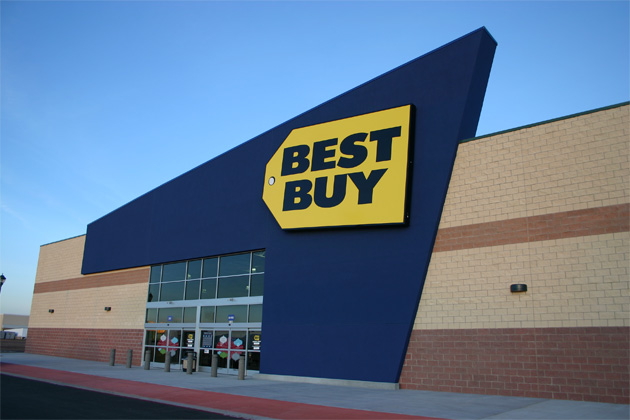By Kavita Kumar
Star Tribune (Minneapolis)
WWR Article Summary (tl;dr) A new “Best Buy” initiative called “Best Buy Ignite” is encouraging entrepreneurs to pitch their products to the box box retailer. If selected, your product could get loaded onto the Best Buy website or end up in one of the “Best Buy” stores in a special section devoted to startups.
Star Tribune (Minneapolis)
Start-ups: Best Buy wants to sell your products — stat.
Not only that, the largest electronics retailer in the U.S. wants to make it easier for entrepreneurs and early-stage companies to get their products loaded onto its website and into customers’ hands. Some of those gadgets could possibly end up in stores, too.
“Your product vision could be the spark of genius we’re looking for,” the retailer says on its website in a pitch under the new initiative, dubbed Best Buy Ignite.
If selected, Best Buy will hook up the start-ups with PCH, a multinational product innovation company, to help with product development, manufacturing, marketing, packaging and inventory management.
Best Buy will then feature those products on a special section of its website devoted to start-ups.
The initiative is reminiscent of Amazon’s move last year to create Launchpad, a dedicated space on its website to highlight products from start-ups. It also aims to streamline the process of getting loaded on its site.
“We’ve been working with start-ups for years,” said Carly Charlson, a Best Buy spokeswoman. “We want to make it easier and faster for our customers to get their hands on the products.”
A curated group of about a dozen such products are already on display in a special section of Best Buy’s Silicon Valley
store, which recently moved from Sunnyvale to Google’s hometown of Mountain View, Calif. The 450-square-foot area currently highlights a selection of crowdfunded gadgets such as the Tangram smart rope and the RoBo 3-D printer, wearable technology from Under Armour and smart headphones and earphones from Muzik and Bragi.
For now, that is the only physical store space being devoted to Ignite. But some products from the initiative — such as the Anova precision cooker, Fizzics draft beer system and the Petcube pet camera — will be interspersed throughout its stores.
“It’s hard to do business with a big box in general when you’re starting off,” said Chad Hetherington, a Minneapolis-based retail broker with the Stable who helps start-ups get connected to big-box retailers. “It’s really interesting that Best Buy has recognized that and is trying to make it easier.”
Hetherington hopes Best Buy will decide to add more designated Ignite spaces like in the California store.
“Brick-and-mortar retail is becoming so predictable,” he added. “You know everything in the stores. That treasure hunt has been lost. The only way to fix that is to have newness and to have things on the shelves they didn’t have before. The only way to do that is with start-ups.”
Carol Spieckerman, a retail consultant, noted that other retailers such as Wal-Mart also have begun doing similar open calls for new products. But Best Buy’s effort seems to be an even deeper, multifaceted one to bring more cutting-edge products to market more quickly.
Consumer electronics is a category where people expect innovation, she added.
“Yet in the past, innovation has been driven mostly by a handful of major national brands — What’s the latest from Apple? What’s the latest from Samsung?” she said.
In the past several years, Best Buy has doubled down on its partnership with those marquee brands by carving out space in its stores for mini-shops from its biggest vendors such as Samsung, Sony and Apple.
But there is a lot of innovation happening outside of those brands, Spieckerman said. The big companies just focus on a few key categories such as televisions or smartphones where they can win while leaving a lot of white space for other newer brands to come up with fresh ideas.
“This is a great way for Best Buy to have a much more robust, true consumer electronics proposition,” she added.
Minneapolis-based Target Corp. has also been dabbling with start-ups. Last year, it opened an experimental store in San Francisco called “Open House” where it displays many new connected home products that have not yet made it to mass market.
Some of the more successful products are now making their way into the rest of Target’s 1,800 stores.














































































































































































































































































































































































